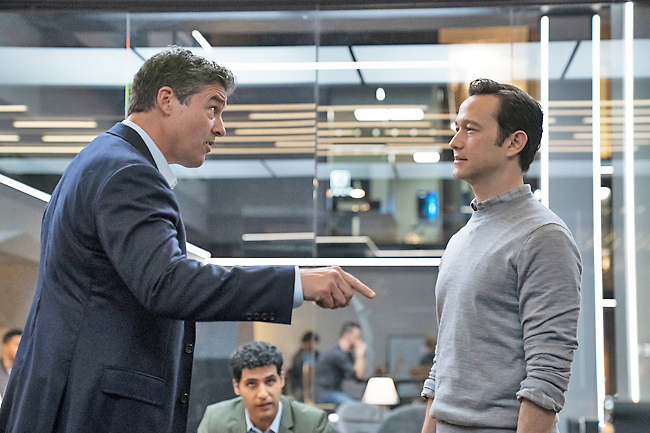Inkoo Kang
THE WASHINGTON POST- When Elizabeth Holmes promised rapid test results for dozens of conditions based on just a few pinpricks of blood – then and now a scientific impossibility – people saw value in the tech, but they also wanted to believe in her.
The Theranos founder represented a story that so many had been waiting for: on the left, an inspirational tale about a true visionary overcoming the entrenched sexism of Silicon Valley to become, for a short while, the youngest self-made female billionaire; on the right, definitive proof that the tech industry is a meritocracy and that any woman worth her salt just needs to lean in and play the game right for her genius to shine through.
No wonder, then, that the cottage industry chronicling the Holmes saga continues unabated, even after the disgraced entrepreneur was convicted of fraud this year. (She is scheduled to be sentenced in the fall). Hers is an irresistible narrative – one with no shortage of humiliated boldface names, a scream-worthy pile of money practically flushed down the toilet and, at the centre of it all, an image-conscious young woman who knew she was a screen for a multitude of projected desires and manipulated them for her own benefit.
But do those of us who’ve already consumed so much Holmes content need another retelling? Intermittently, at least, the Hulu miniseries The Dropout – starring Amanda Seyfried as the green-juice-sipping, Steve Jobs-worshiping, magazine cover-gracing mega-scammer – indulges in enough of the freedoms of fiction to become more than a dramatisation of events a viewer would more efficiently glean from a documentary, a longform article or the excellent ABC News podcast on which the series is based. (Audiences can also wait for Adam McKay’s film version of the Holmes tale, which is set to star Jennifer Lawrence).
Created by Elizabeth Meriwether (New Girl), this eight-part drama feels very much like a movie stretched and padded to fill out a multi-episode mould. But it does give us a believable interpretation of Holmes: that of a monomaniacal teen-turned-woman whose financially unstable childhood and starry-eyed ambitions led to a lie that, once born, required non-stop feeding.

As a teenager, Seyfried’s Elizabeth is an awkward, show-offy priss; in the pre-college language programme she attends in Beijing, where she meets her future boyfriend and co-conspirator, Sunny Balwani (Naveen Andrews), she chides her roommates for speaking English with one another outside of class instead of using every opportunity to practice their Mandarin. Twenty years her senior and prone to bursts of rage, Sunny, a software entrepreneur somewhat aimless after selling his last company for tens of millions of dollars, immediately declares Elizabeth “impressive”. Before long, the two embark on a furtive relationship based on support, guidance, control and codependence.
The Dropout is an able if bloated and familiar overview of Holmes’s founding of Theranos at the age of 19 and its astounding expansion despite its core innovation, blood tests being performed on minute droplets, never coming to fruition. Meriwether is less interested in how Theranos serves as a symbol for Silicon Valley’s toxic positivity than in the human cost of the company’s fraud and the paranoia required to maintain it. In Elizabeth and eventually Sunny’s wake, friendships and families are fractured, employees driven to despair and unsuspecting patients given devastating and costly false positives.
But where The Dropout excels most – other than in its dual lead performances – is in unpacking the gendered fascination with Elizabeth. The show transports us back to a time when the sight of an ultrasuccessful young female founder really was striking, especially for fellow women in tech, while illustrating its protagonist’s studied transformation into the Holmes we know today: she of the red lipstick, austere wardrobe and fake deep voice.
(Somewhat deglammed, Seyfried, in perhaps her best performance to date, is more notable here for the intensity she brings to her character, as well as her excellence in portraying Elizabeth in a wide range of ages).
Meriwether and her writers don’t bring new insight into the dynamics that allowed the real-life Holmes to put her older male benefactors at ease by occupying a type of femininity that’s beguiling yet nonthreatening. But it’s worth considering anew all the effort and inspiration that went into her gradual makeover, especially since no pre-existing template existed for her in Palo Alto – or at least none she was interested in emulating.
The Dropout also succeeds in envisioning the probable contours of Elizabeth and Sunny’s increasingly dysfunctional relationship, while injecting some black humour and novelty via a late plotline that brings together the female founder’s foes (played by a murderer’s row of character actors in Kate Burton, William H Macy and Laurie Metcalf). Other welcome faces include Stephen Fry, Elizabeth Marvel, Alan Ruck, Kurtwood Smith and Sam Waterson – the latter two playing, respectively, Elizabeth’s onetime lawyer David Boies and her investor and confidant George Shultz, a former secretary of state.
But while the miniseries conveys the fallout from Theranos’ duplicity, the more brazen and outrageous Elizabeth’s lies become, the more we lose sight of her as a character.
Listening to the podcasts and watching the documentaries about Holmes, I always wondered how the CEO felt about her ability to spin so many plates to keep the falsehoods going and the money coming: Tired? Guilty? Stuck? Masterful? Exhilarated? Did she really think she’d be able to one day deliver the revolution she kept selling, or did she always know she was merely building a house of cards? Save for the corrosive romance at the heart of the show, The Dropout’s first seven episodes (the number provided to critics) don’t imagine enough, perhaps to hew to a journalistic impulse that’s noble in theory, but fails to fully satisfy in execution. In the end, its title character remains as elusive as her promises.
If Elizabeth Holmes reinvented herself into a biotech messiah, Travis Kalanick, the co-founder of Uber, transformed himself into a cartoon. At least that’s the impression left by Super Pumped, Showtime’s new business-centric anthology drama from Billions creators David Levien and Brian Koppelman. (Perhaps Ryan Murphy already trademarked American Business Story). Subtitled The Battle for Uber, the first season, adapted from journalist Mike Isaac’s book, centres on one of the tech world’s most notorious “bad boys”, who resigned as the ride-share company’s CEO in 2017.
Overwritten and initially plagued with tonal issues, the seven-part drama follows the fictionalised Travis (Joseph Gordon-Levitt) as he grows his fledgling start-up from a scofflaw David to a villainous Goliath. But Super Pumped is most compelling as a study of how one individual at the top can create a noxious office culture – one so rancid it eventually looks like corporate suicide. “So, you wanna work at Uber,” said Travis in the series’ opening line. “I have one question for you: Are you a mean guy?” It’s already clear how he’d respond, and how proudly.
The first two episodes are fuelled by sneers, bombast, hard rock and dialogue that tries a little too hard to replicate the “A million dollars isn’t cool. You know what’s cool? A billion dollars” line from The Social Network without ever getting there. Add the energy-drink-commercial-style narration by an unrecognisable Quentin Tarantino, and you might start wondering if secondhand testosterone poisoning is fatal. But then the supporting characters – starting with Travis’s first major investor, Bill Gurley (Kyle Chandler) – emerge, and Super Pumped becomes much more humane, coherent and watchable.
The episodic structure helps, too, with Travis creatively manoeuvering around or simply knocking off the obstacles to Uber’s expansion, while instilling among his staff a disrespect or disregard for safety, privacy, women, the law, his competitors and even his allies. Travis is the kind of guy who gets excited by having enemies, “You know you’re on your way up when they slap a target on your back,” he preened. But he doesn’t have to bear the brunt of working at an all-goons company. Bill starts to wonder whether his one sure unicorn – the billion-dollar start-up at the end of the rainbow – is worth enabling Travis’s worst impulses and ruining his own name in the process. Travis’s right-hand woman, Austin Geidt (Kerry Bishé), realises too late that she may not just be a victim in Uber’s pro-bro culture, but also a contributor.
The sweet-faced Gordon-Levitt clearly has a blast playing against type. Much of the show’s energy in the first five episodes (those screened for review) comes from Travis’s blustering stunts: negging investors, for example, by cancelling all his meetings with them so they’ll be forced to come to him. Super Pumped loves stunts (and stunt-casting) as much as its protagonist: Fred Armisen plays the mayor of Portland, Mark Cuban appears as himself in a cameo and Uma Thurman sports an extravagant accent as Arianna Huffington. She’s one of several women from whom Travis, a nerdy mama’s boy at heart, seeks mentorship, but he’s clueless about the casual misogyny festering in his own company. From women (or men), he only knows how to take.
That love of stunt extends to the series’ visuals. In fact, it’s a relief when the show’s palette – grey on grey on grey – gives way to an animated video game sequence (of course Travis sees any given situation as something to level up from) or a flow chart of rhetorical tactics he can use against his opponents, many of whom simply thought of themselves as conversation partners until he forces them to realise otherwise. It’s a portrait of a young man as a leader who, handed ludicrous sums of wealth and power, only brings out the worst in himself and others – a real-life horror story.







